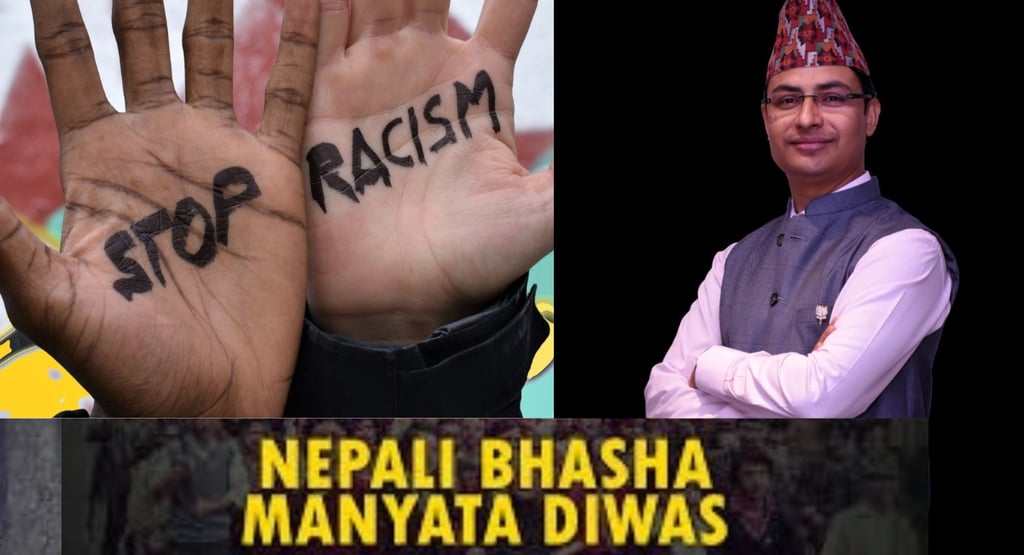Darjeeling MP condemns racist remarks against Nepali language, calls for respect on Bhasa Manyata Diwas
According to reports, the first incident took place in Mungpoo Court where a Judicial Magistrate allegedly rebuked a lawyer for speaking in Nepali to court clerks.
LOCAL


As the Indian Gorkha community prepares to celebrate Nepali/Gorkha Bhasa Manyata Diwas on August 20, two incidents of alleged racism against the Nepali language have cast a shadow over the occasion. Darjeeling MP and BJP National Spokesperson Raju Bista has strongly condemned both cases, calling them shocking, hurtful, and a direct attack on the identity of Indian Gorkhas.
According to reports, the first incident took place in Mungpoo Court where a Judicial Magistrate allegedly rebuked a lawyer for speaking in Nepali to court clerks. The judge reportedly told the lawyer that “Nepali should not be spoken in court as it is a language of Nepal, not India.” The Darjeeling Bar Association has expressed outrage over the remark, terming it disrespectful and unconstitutional.
Bista said such a comment coming from a judicial officer is “abhorrent” and undermines the dignity of an official Indian language. He reminded that Nepali was recognised under the Eighth Schedule of the Indian Constitution in 1992 through the 71st Constitutional Amendment and has been the official language of West Bengal since 1961. “It is beyond my understanding how a judge of an Indian court can be unaware of this constitutional fact,” Bista said. He added that dismissing Nepali in an Indian courtroom sends a dangerous message of exclusion and erodes trust in the justice system.
The second incident involved a Master’s level scholar from Sikkim University, who allegedly stated that teachers and students should not use Nepali in classrooms, saying “this is not Nepal.” Bista described this remark as equally disturbing, particularly when it comes from an academic environment where diversity and respect should be encouraged.
Highlighting the contributions of the Gorkha community, Bista pointed to freedom fighters like Dal Bahadur Giri, Helen Lepcha, Jangbir Sapkota, Pushpa Kumar Ghising, Krishna Bahadur Mukhia, Subedar Niranjan Chettri, Major Durga Malla, Capt. Ram Singh Thakuri, Dalbir Singh Lohar, Gaga Tshering Dukpa, Dambar Gurung, and Ari Bahadur Gurung, who fought for India’s independence. He also mentioned the achievements of icons such as Padma Bhushan Tenzing Norgay Sherpa, football star Sunil Chettri, hockey player Bharat Chettri, and several others who continue to bring pride to the nation.
“These incidents are not isolated. They reflect a disturbing pattern of prejudice and systemic erasure faced by the Gorkha community,” Bista said. He said that Gorkhas are loyal citizens who have made invaluable contributions to nation-building and deserve equal respect.
With Bhasa Manyata Diwas being observed to mark the recognition of Nepali as an official Indian language, Bista said such incidents serve as a reminder of the struggles faced by the community. “Our language is our identity, and it is as Indian as any other. We will not stay silent. We will not be erased,” he said.
